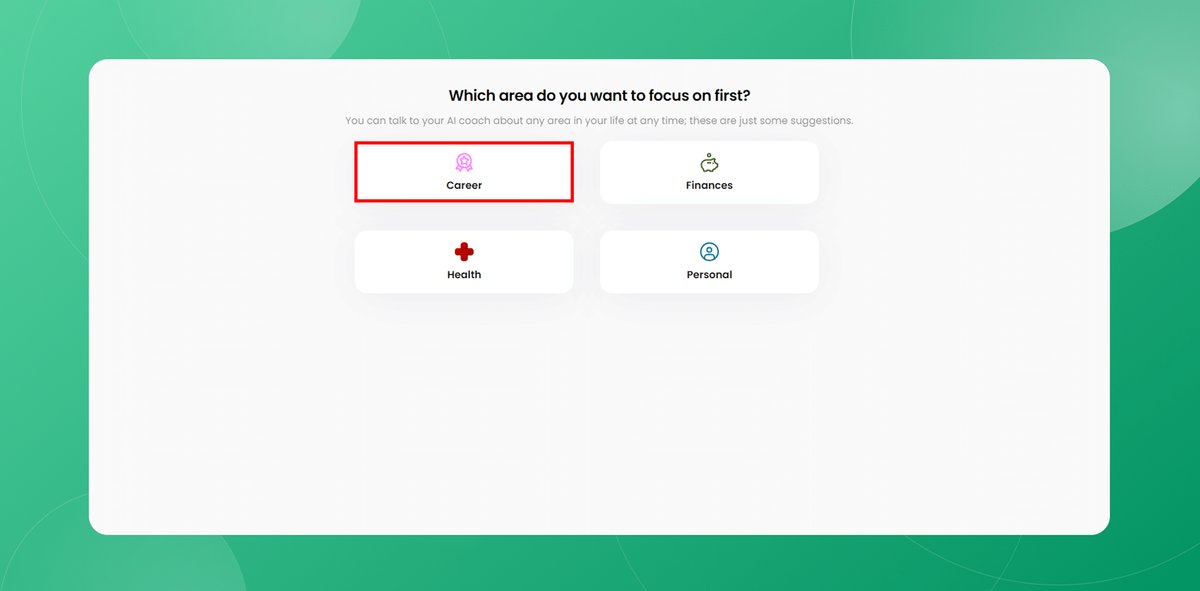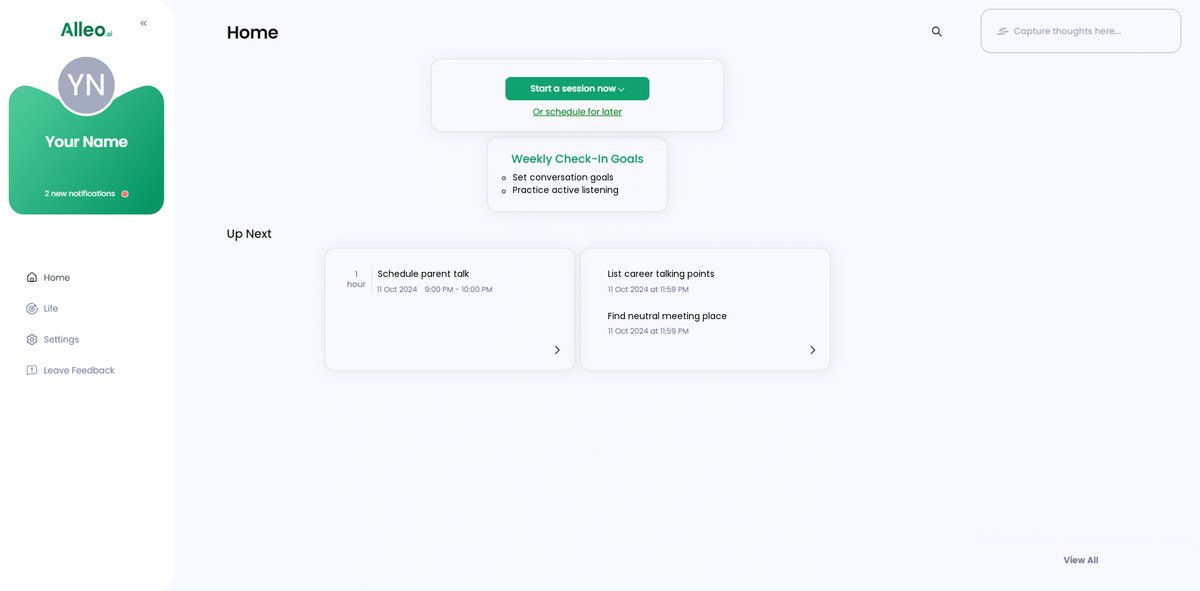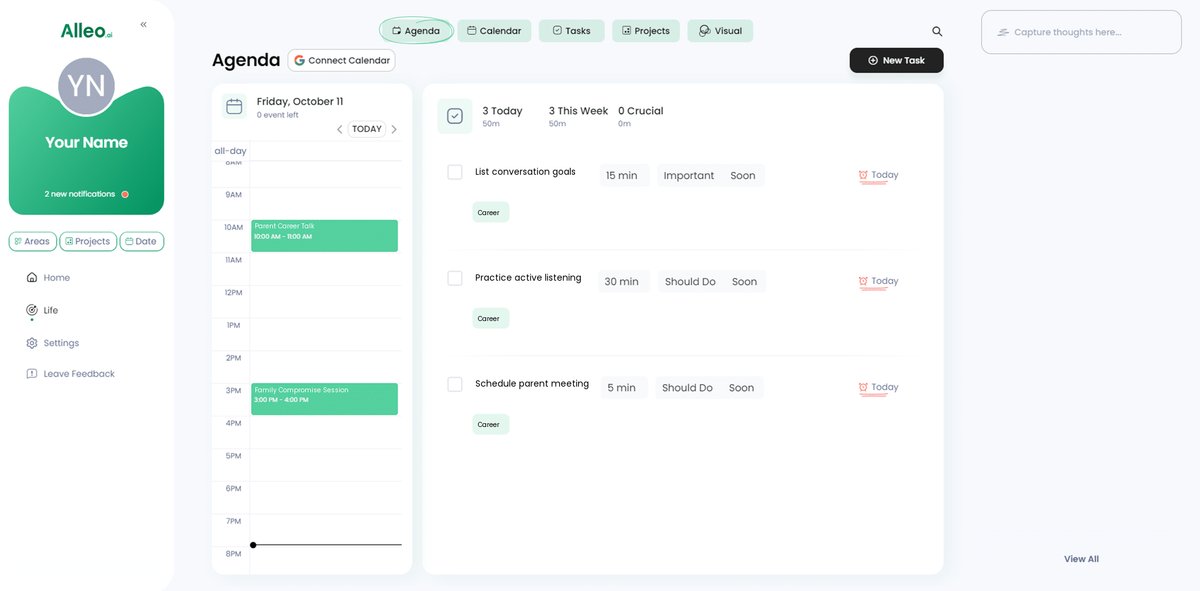How to Approach Tough Conversations with Parents: 6 Proven Methods for Young Leaders
Do you ever feel overwhelmed by the thought of having a tough conversation with your parents about your career choices? Navigating parent career discussions can be challenging for young adults.
As a life coach, I’ve helped many young leaders navigate these challenging discussions. These conversations can be filled with anxiety and uncertainty, especially when managing expectations and building confidence in difficult discussions.
In this blog, you’ll learn actionable steps to approach these conversations effectively. We’ll cover strategies like setting clear goals, practicing active listening for better understanding, and expressing empathy. These communication strategies for teenagers and young adults will help in navigating family conflicts and bridging generational gaps in communication.
Let’s dive in and explore techniques for respectful disagreement and expressing concerns to authority figures.

The Struggle with Parental Conversations
Navigating parent career discussions and other important life choices can be incredibly daunting. Many clients initially struggle with the fear of disappointing their parents, which adds immense stress and impacts their ability to build confidence in difficult discussions.
This anxiety can hinder their ability to lead effectively, maintain mental health, and develop emotional intelligence for youth leadership roles.
In my experience, these discussions often impact leadership roles and personal wellbeing. It’s not just about the conversation itself; it’s about managing the expectations and emotions involved, which requires strong communication strategies for teenagers and young adults.
For instance, one common scenario is explaining a career change to parents who have different expectations, which involves navigating family conflicts and bridging generational gaps in communication.
Such conversations can feel overwhelming, but they are essential for growth and developing crucial conflict resolution skills for young people.

A Roadmap to Navigating Tough Conversations with Parents
Overcoming this challenge requires a few key steps. Here are the main areas to focus on to make progress in navigating parent career discussions:
- Prepare and Set Clear Goals: Identify specific goals and gather supporting information for navigating family conflicts.
- Practice Active Listening and Empathy: Listen without interrupting and validate their feelings, using active listening for better understanding.
- Choose the Right Time and Place: Schedule the conversation when both parties are calm, which is crucial for navigating parent career discussions.
- Express Care and Concern: Start with appreciation and positive feedback, demonstrating emotional intelligence for youth leaders.
- Use “I” Statements: Focus on your feelings and avoid blaming language, employing communication strategies for teenagers.
- Acknowledge Their Perspective: Recognize their concerns and find compromises, utilizing respectful disagreement techniques.
Let’s dive in!
1: Prepare and set clear goals for the conversation
Preparing and setting clear goals for the conversation is crucial for ensuring a productive dialogue when navigating parent career discussions.
Actionable Steps:
- Identify specific goals: Write down what you hope to achieve from the conversation, such as explaining your career choice clearly or understanding your parents’ concerns. This is essential for building confidence in difficult discussions.
- Research and gather information: Collect data to support your points, such as job market trends or success stories in your chosen field. This step helps in bridging generational gaps in communication.
- Role-play the conversation: Practice with a trusted friend or mentor to anticipate objections and refine your responses. This enhances your assertiveness skills for young adults.
Explanation:
By setting clear goals, you create a roadmap for the conversation that helps you stay focused and organized when navigating parent career discussions.
Gathering information and practicing beforehand also boosts your confidence and prepares you for potential challenges, which is crucial for navigating family conflicts.
For example, research shows that preparation can significantly improve the outcome of difficult discussions. This preparation is essential in bridging the gap between expectations and reality.
Key benefits of proper preparation:
- Increased confidence in your position
- Better ability to address concerns
- Reduced likelihood of emotional reactions
Taking these steps first will set a strong foundation for the conversation, enhancing your communication strategies for teenagers and conflict resolution skills for young people.

2: Practice active listening and empathy
Practicing active listening and empathy is critical for effective communication with your parents when navigating parent career discussions.
Actionable Steps:
- Listen without interrupting: Focus on what your parents are saying without preparing your response. This shows you value their input and is key to bridging generational gaps in communication.
- Paraphrase their points: Summarize what you’ve heard to ensure understanding and demonstrate that you are engaged, which is crucial for building confidence in difficult discussions.
- Validate their feelings: Use empathetic statements like, “I understand why you feel that way.” This is an essential emotional intelligence skill for youth leaders.
Explanation:
These steps matter because they build trust and show respect, which are key in resolving conflicts and navigating family conflicts.
According to CDC guidelines, active listening and empathy are essential for effective communication and trust-building.
Implementing these practices helps bridge the gap between different perspectives, fostering a more productive dialogue when navigating parent career discussions.
These skills will be invaluable as you navigate challenging conversations with your parents, employing respectful disagreement techniques and assertiveness skills for young adults.

3: Choose the right time and place for discussion
Choosing the right time and place for discussion is crucial for ensuring a productive and calm conversation when navigating parent career discussions. This step is key in developing communication strategies for teenagers and building confidence in difficult discussions.
Actionable Steps:
- Schedule the conversation: Arrange the discussion when both you and your parents are calm and free from other stressors, which is essential for navigating family conflicts.
- Pick a neutral location: Choose a comfortable, private place like a quiet café or a private room at home to minimize distractions and practice assertiveness skills for young adults.
- Allow enough time: Ensure there is ample time for an unhurried conversation, avoiding moments when either party has pressing commitments, which supports active listening for better understanding.
Explanation:
These steps are essential for creating an environment conducive to open and honest dialogue when navigating parent career discussions. According to CDC guidelines, choosing the right setting can significantly enhance the quality of communication and help in bridging generational gaps in communication.
By being mindful of timing and location, you demonstrate respect for the importance of the conversation and help reduce potential stress, which is crucial when expressing concerns to authority figures.
Creating a conducive environment sets the stage for a meaningful discussion, allowing for the practice of respectful disagreement techniques and conflict resolution skills for young people.

4: Express care and concern before addressing issues
Expressing care and concern before diving into tough conversations is crucial for setting a positive tone and fostering understanding when navigating parent career discussions.
Actionable Steps:
- Start with appreciation: Begin by expressing your gratitude and love for your parents. For example, “I truly value your guidance and support.” This helps in building confidence in difficult discussions.
- Acknowledge past support: Mention any positive feedback or encouragement they’ve given. This helps build a positive tone and is key to bridging generational gaps in communication.
- State your intentions: Clearly communicate that your goal is to foster understanding and find common ground, not to argue or create conflict. This is an essential assertiveness skill for young adults.
Explanation:
These steps matter because they help establish a respectful and empathetic environment, which is essential for productive discussions and navigating family conflicts.
According to CDC guidelines, expressing care and concern can significantly enhance the quality of communication and trust-building.
By starting on a positive note, you set the stage for a more open and honest dialogue when navigating parent career discussions.
Effective ways to express care:
- Share a specific memory of their support, demonstrating active listening for better understanding
- Highlight a valuable lesson they taught you, showcasing emotional intelligence for youth leaders
- Express gratitude for their ongoing presence in your life, a key aspect of respectful disagreement techniques
Creating a supportive atmosphere can make a big difference in how the conversation unfolds, especially when expressing concerns to authority figures.

5: Use “I” statements to communicate your feelings
Using “I” statements to communicate your feelings is vital for expressing yourself without making your parents defensive when navigating parent career discussions.
Actionable Steps:
- Frame your statements personally: Start sentences with “I feel” or “I think” to focus on your own experiences, enhancing your assertiveness skills for young adults.
- Avoid blame: Ensure your language does not accuse or blame, which can escalate conflict when navigating family conflicts.
- Provide specific examples: Illustrate your points with real-life instances to make your feelings more relatable, building confidence in difficult discussions.
Explanation:
These steps matter because they help convey your emotions clearly without triggering defensiveness, a key aspect of emotional intelligence for youth leaders.
According to CDC guidelines, using “I” statements can significantly improve the quality of communication by keeping the focus on your perspective, essential when navigating parent career discussions.
This approach fosters understanding and reduces miscommunication, bridging generational gaps in communication.
Using “I” statements is a powerful tool for maintaining a constructive dialogue and expressing concerns to authority figures when navigating parent career discussions.

6: Acknowledge their perspective and find compromise
Acknowledging your parents’ perspective and finding compromise is essential for navigating parent career discussions and fostering mutual understanding and respect.
Actionable Steps:
- Recognize their concerns: Verbally acknowledge their worries, such as, “I see that you’re concerned about my financial stability,” using active listening for better understanding.
- Offer compromises: Suggest solutions that address both your goals and their concerns, like proposing a trial period for your chosen career path, utilizing assertiveness skills for young adults.
- Be willing to negotiate: Show flexibility by being open to adjusting your plans slightly to demonstrate consideration of their views, employing respectful disagreement techniques.
Explanation:
These steps matter because they show respect for your parents’ opinions while still advocating for your own goals, which is crucial when navigating parent career discussions.
According to this CDC guideline, acknowledging and addressing concerns helps build trust and fosters a productive dialogue. This balance between assertiveness and empathy can lead to more favorable outcomes for both parties, enhancing emotional intelligence for youth leaders.
Strategies for finding common ground:
- Identify shared goals or values
- Propose step-by-step plans with checkpoints
- Seek win-win solutions that address both sides’ needs
Finding common ground can transform a challenging conversation into a collaborative problem-solving session, effectively bridging generational gaps in communication and navigating family conflicts.

Partner with Alleo to Navigate Tough Conversations
We’ve explored the challenges of navigating parent career discussions and the steps to approach them effectively. But did you know Alleo can make this journey easier, especially when it comes to communication strategies for teenagers?
Alleo is your AI life coach, providing tailored support for these discussions and helping build confidence in difficult discussions. It offers full coaching sessions, just like a human coach, with a free 14-day trial requiring no credit card.
To get started, set up an account and create a personalized plan. Alleo helps you prepare, practice, and follow up on your progress, enhancing your assertiveness skills for young adults and assisting in navigating family conflicts.
It keeps you accountable with text and push notifications, supporting your journey in developing emotional intelligence for youth leaders.
Ready to get started for free and improve your skills in navigating parent career discussions? Let me show you how!
Step 1: Log In or Create Your Account
To begin your journey with Alleo and prepare for those important conversations with your parents, log in to your account or create a new one to access personalized coaching support.

Step 2: Choose Your Focus Area
Select “Finding clarity and purpose in life decisions” to gain insights and strategies for navigating challenging conversations with your parents about your career choices and personal goals, helping you align your aspirations with their expectations and fostering mutual understanding.

Step 3: Select “Career” as Your Focus Area
Choose “Career” as your focus area in Alleo to get tailored guidance on navigating tough conversations with your parents about your professional choices, helping you articulate your goals and address their concerns effectively.

Step 4: Starting a coaching session
Begin your journey with Alleo by scheduling an intake session, where you’ll discuss your goals for navigating tough conversations with your parents and create a personalized action plan to guide your future coaching sessions.

Step 5: Viewing and managing goals after the session
After your coaching session on navigating tough conversations with parents, check the Alleo app’s home page to review and manage the goals you discussed, helping you stay on track with your communication strategy.

Step 6: Adding events to your calendar or app
Use Alleo’s calendar and task features to schedule your conversation with your parents and track your progress in preparing for and following up on the discussion, helping you stay organized and accountable throughout the process.

Wrapping Up: Embrace the Journey
Navigating parent career discussions can seem overwhelming, but it’s a journey worth taking. By preparing, listening actively, and showing empathy, you create space for understanding and growth while building confidence in difficult discussions.
Remember, you’re not alone in this. Many have walked this path before you, mastering communication strategies for teenagers and bridging generational gaps in communication.
Take each step one at a time. Practice makes progress, especially when it comes to assertiveness skills for young adults and navigating family conflicts.
Alleo is here to support you along the way. Use it to prepare, practice, and follow up on these conversations, enhancing your emotional intelligence for youth leaders.
Embrace the challenge of navigating parent career discussions. With the right approach, including respectful disagreement techniques and active listening for better understanding, you can strengthen your relationships and lead with confidence.
Ready to start? Try Alleo for free and take the first step today in mastering conflict resolution skills for young people and expressing concerns to authority figures.